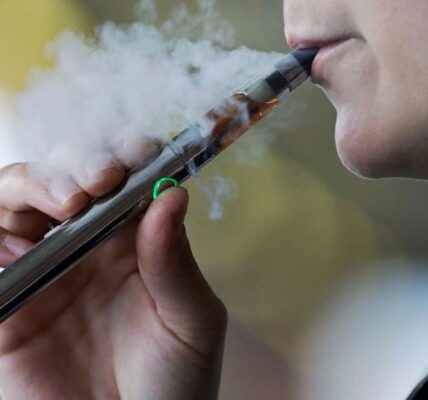For individuals who have been diagnosed with an addiction to alcohol or another drug, inpatient treatment—also known as residential treatment—offers the highest level of rehabilitation services.In most cases, integrated mental health services and medical detox are included in inpatient drug rehab programs.
Clinicians begin inpatient treatment for substance abuse by getting a good understanding of your particular circumstance.In order to create an individual drug and alcohol rehab plan for you, our treatment team will assess your mental and physical health as well as your past chemical use.Our rehab staff may, with your permission, also talk to members of your family and consult with professionals you may already be working with to address your challenges and needs.
We bring together a multidisciplinary team to provide you with a holistic healing plan because addiction is a disease that affects your body, mind, and spirit.For residential treatment, members of your licensed team may include:
Our inpatient drug rehab programs are also gender-specific, which has been shown to help patients stay focused on the recovery process, explore sensitive issues in a safe and supportive environment, and strengthen trusting relationships with peers. Additionally, our inpatient drug rehab programs are staffed by physicians, nurses, psychiatrists, psychologists, licensed addiction counselors, nutritionists, wellness and fitness specialists, continuing care coordinators, financial advocates, and clinical case managers.
What is the Detox Process?
The first step toward helping your body and brain recover from substance abuse is detox.The first step in the detox process is for doctors and nurses to evaluate the patient to see if any medical interventions are required.Detox is mostly about flushing chemicals out of your body, which can be uncomfortable if you don’t get the right medical care to help you feel better or stop craving drugsYou will be monitored by medical professionals round-the-clock during the detox process until staff members determine that you are stable enough to participate in rehab programs and activities.
What Happens During Inpatient Alcohol and Drug Treatment?
You will move to your residential treatment unit following detox, where you will meet your fellow patients and take part in rehab services and activities.Inpatient drug rehab activities at treatment centers may include:
- Individual mental health assessments and therapy Medical appointments
- Wellness and fitness activities
- Family program participation
- Nutritional assessment Spiritual care
- Educational and experiential workshops
- Continuing care planning
Our drug and alcohol addiction treatment programs are based on science, evidence, and our experience of what works best in helping people get sober and stay sober. Individual chemical health assessments and therapy Individual mental health assessments and therapy Individual mental health assessments and therapy.
Inpatient addiction treatment focuses on stabilization and health assessments to ensure that you are physically, psychologically, and emotionally ready to learn about fundamental recovery principles and begin practicing them. You will receive a treatment activity, appointment, and service schedule each day that is tailored to meet your particular recovery needs and objectives.Find out more about the day-to-day activities of inpatient addiction treatment.
How do I determine whether I require inpatient substance abuse treatment?
Typically, one of three groups of people will benefit the most from inpatient addiction treatment:
The majority of patients who come to us for inpatient rehab also struggle with a co-occurring mental health condition, such as depression, anxiety, or post-traumatic stress disorder (PTSD), that needs to be addressed during addiction treatment. These patients include individuals who are at a high risk of experiencing drug or alcohol withdrawal; individuals who have experienced a relapse; individuals who have tried a less intensive level of drug or alcohol treatment but were unable to remain sober; and individuals who have tried a less intensive level of treatment
Whether you have a healthy and supportive home environment where your recovery will be prioritized is another consideration when choosing between an inpatient and an outpatient rehabilitation center. Outpatient treatment might be a good fit for you in that case. In that case, a residential treatment program with a built-in support system is probably going to be your best bet.
You can get help weighing all of the different factors and choosing the best level and type of treatment program to meet your needs from a licensed addiction professional.
How long does in-patient alcohol treatment last?
Your length of stay in alcohol or drug rehab will be determined by how well you meet certain clinical milestones.The best schedule and plan for you will be developed by our clinical team in collaboration with your family and insurance company.It is unrealistic to anticipate that recovery will occur so quickly, just as addiction does not occur over the course of a few weeks or months.
You will receive recommendations for follow-up care and ongoing recovery support following your discharge from inpatient treatment to strengthen your sobriety and lower the likelihood of relapse. Addiction is a chronic condition, just like diabetes and high blood pressure. Recapturing your well-being implies figuring out how to deal with your side effects, first inside the design of an ongoing recovery program and in the long run in your home climate where you are accountable for keeping up with and reinforcing your recuperation.
How much does addiction treatment in a hospital cost?
The treatment center chosen, the recommended level of clinical care, and the length of time spent in treatment all influence the cost of inpatient rehab programs.The amount you pay will also be determined by whether you are paying out of your own pocket or are able to use insurance benefits to cover the cost.It is essential to inquire about your specific coverage details with your provider because insurance policies and benefits vary greatly. A non-profit treatment center, provides limited patient financial assistance funds to help eligible patients pay for addiction treatment.
Helpful Resources
Drug and Alcohol Detox Programs
NH Residential Drug Rehab Centre
Drug and alcohol treatment programs











